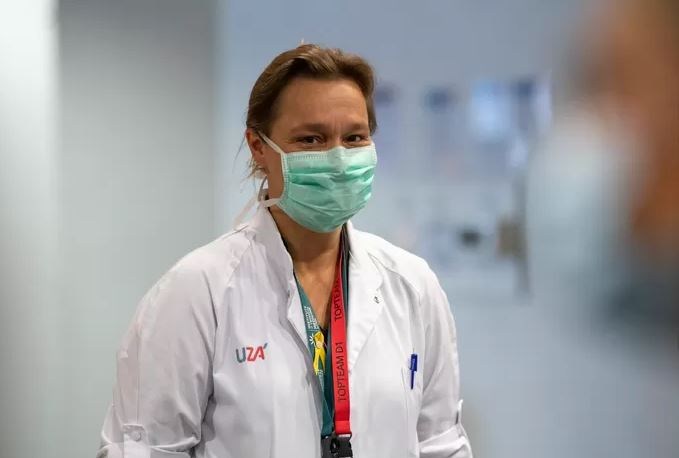As nearly all coronavirus figures are rising sharply again now that Belgium lifted most restrictions, infectious disease expert and chair of the GEMS expert group Erike Vlieghe warned that caution remains advised.
The average number of Covid-19 patients currently being admitted to hospital every day (169) is a lot higher than the maximum threshold of 65 set out for 'code yellow,' but Vlieghe does not want to get too hung up on the barometer.
"Within the Risk Assessment Group (RAG), we look at some 50 parameters. Intensive care is indeed still spared, but a lot of other things worry us," she told De Standaard.
"Not only does the number of net hospitalisations remain rather high, we also see more outbreaks in hospitals. The number of cases is indeed increasing, in Flanders definitely due to the increased contacts," Vlieghe said. "And especially the number of cases among people over 65 is increasing. That worries us."
Related News
- 'Too little scientific evidence' for second booster dose in Belgium
- Belgium's hoped-for herd immunity against Covid 'not possible,' says expert
For her, people have started thinking that the pandemic is entirely over a lot too soon. "I do not want to hear about the term 'realm of freedom' anymore. Although things are going much better, it is much more about the realisation that we have to remain careful, especially with our vulnerable people."
Vlieghe added that, in terms of measures, Belgium is not doing as well as it did at the end of the year celebrations, when people still made arrangements to meet outside, did self-tests and so on.
"We seem to have forgotten that there is still a lot of virus circulation. Meet up outside, test yourself before you visit your grandmother and keep ventilating indoor spaces," she said. "I realise that the current energy prices obviously do not help with that, but hopefully the better weather in the near future can help."
'Have we learned nothing?'
In the meantime, Federal Health Minister Frank Vandenbroucke presented a bill to structurally embed ventilation, something which Vlieghe is looking forward to. "More ventilation will not solve the problem, but it is very important."
"All cultural and indoor activities have now been restarted without restrictions. That is nice, but you also see people crammed together into parish halls again," she said. "Have we learned nothing? Ventilation also works against influenza and other pathogens."
Vlieghe stressed that people who want to should keep wearing a face mask, even if no one else is doing it. She will continue to chair the GEMS until 8 April, after which it will cease to exist. "At the moment, we are still working on a global evaluation to see how well we are prepared for another major wave."

